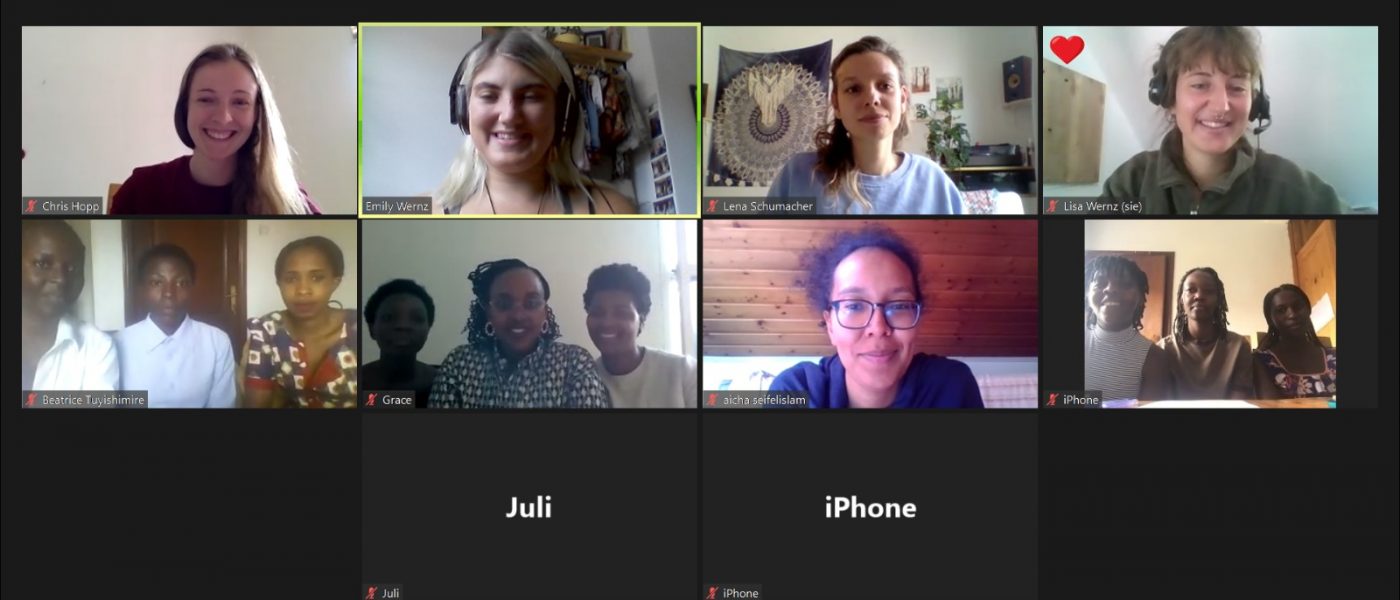
from Chris Hopp
Kandaka Naturals Rwanda celebrated this year’s world menstruation day on June 28th with a special workshop. Lisa, member of Kandaka Naturals Germany and founder of the German organization FDG (Feminist Village Whisper) and I, Chris, volunteer at Kandaka Naturals Rwanda, organized a workshop on the topics taboo menstruation and period poverty. The goal was not only to learn about those subjects, but also to create space for an intercultural exchange between the Rwandan and German participants. The Kandaka Naturals Rwanda team gathered at the office, while the FDG members and other participants from different places joined via zoom. There were 18 people in total.
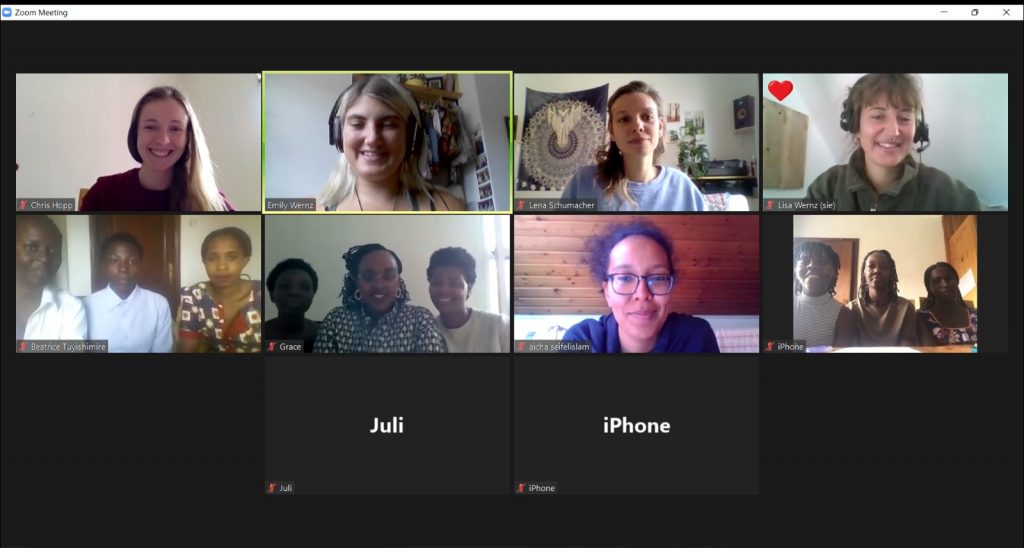
In the first part of the workshop, the participants shared their first thoughts when seeing a picture of a menstrual cup filled with blood. The various answers showed that the emotions and thoughts of the attendees vary a lot.
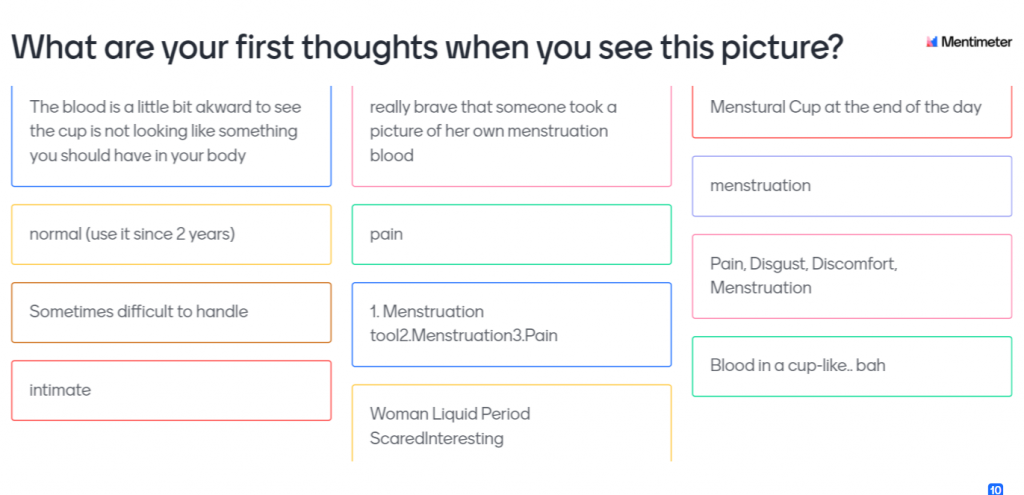
Some people associate seeing menstrual blood with disgust while others feel like it’s completely normal.
For some attendees the focus was on the cup itself, as they are not familiar with it.
We discussed this outcome in separate breakout rooms. Why does the picture trigger these emotions? Why is it a taboo to talk about the period? And why do we feel discomfort seeing menstrual blood although the period is a completely natural process which half of the world’s population is going through every month? We found out that the relation to menstruation mainly depends on the way someone is raised. Being taught that menstruation is something to hide and not to talk about from the very beginning will probably not lead to an easy relationship when it comes to one’s own period. The way this topic is treated in the families and at school shapes us for the further years.
We approached the topic of period poverty in breakout sessions where the Rwandan and the German group watched two different videos.
The Kandaka Naturals Rwanda team watched a video that tells the story of a young woman in the UK, not able to afford menstrual products and having to go to school with a blood stain. This video breaks the bias, that period poverty doesn’t exist in European countries. It is a global issue and exists everywhere.
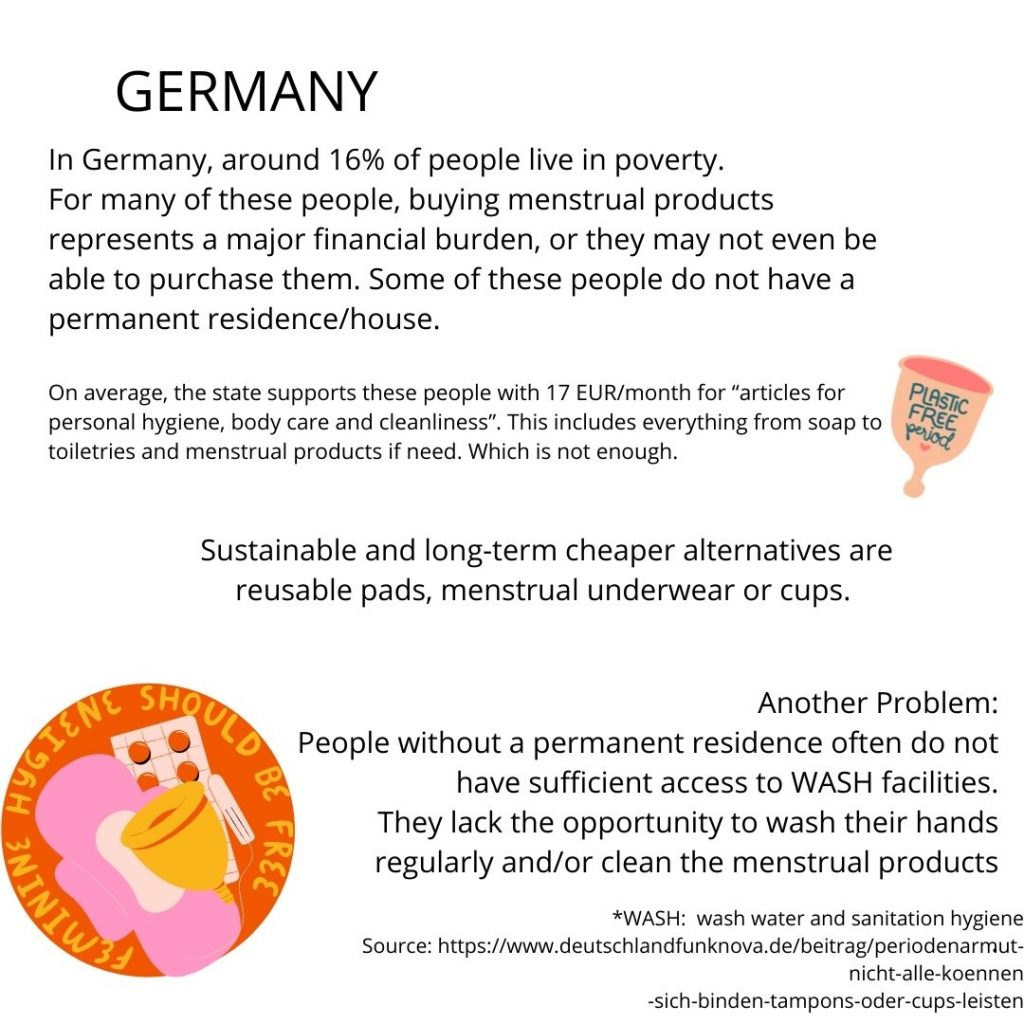
The other video covers the situation in Kenya and connects the topics period poverty, teenage pregnancies and sexually transmitted diseases. If girls and women are not able to afford menstrual products, they might look for ways to get those by having unprotected sex with men. Other impacts are social isolation and missing school or work. This leads to less access to education which again affects their future. This shows that the topic of period poverty is not an only problem and its far- reaching consequences should not be underestimated.
Period poverty is a very sensitive topic and needs to be dealt with carefully, especially during workshops. Some of the attendees might have been or might still be in the situation of not being able to afford menstrual products and dealing with this topic can trigger emotions. Before watching videos like these, a trigger warning is necessary.
We exchanged the outcomes of the breakout session in the plenum and talked about the general situation of period poverty in Rwanda and Germany. What has been done in both countries until now? And what needs to be done to end period poverty? We concluded that lowering the taxes, which has been done in both countries, is not enough for people to be able to afford menstrual products.
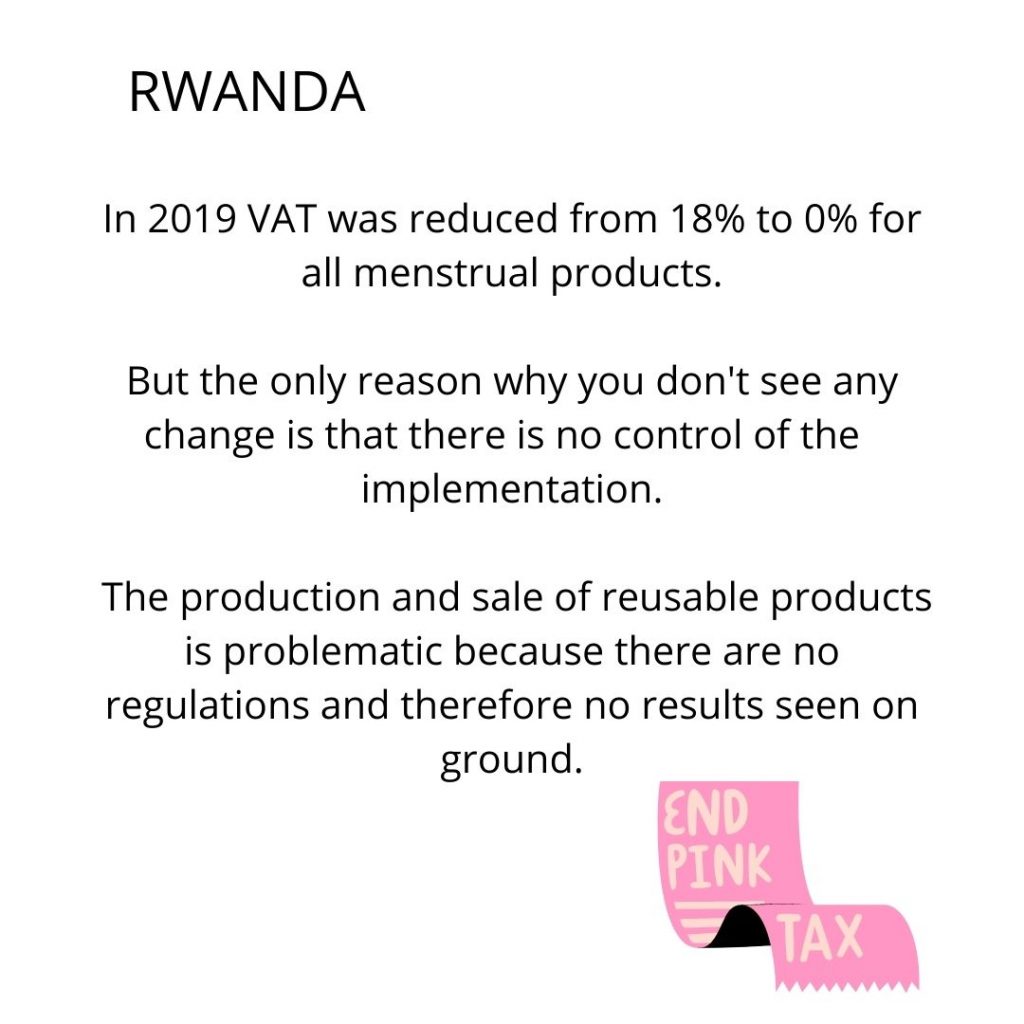
Every single person can make a change by supporting organizations and projects who aim to end period poverty. Furthermore, freeing the topic of menstruation from taboos is an important step. If there is an issue no one is talking about, it cannot be tackled. It is a societal change that needs to happen, starting by educating young people in schools and parents raising their children by openly talking about the period.
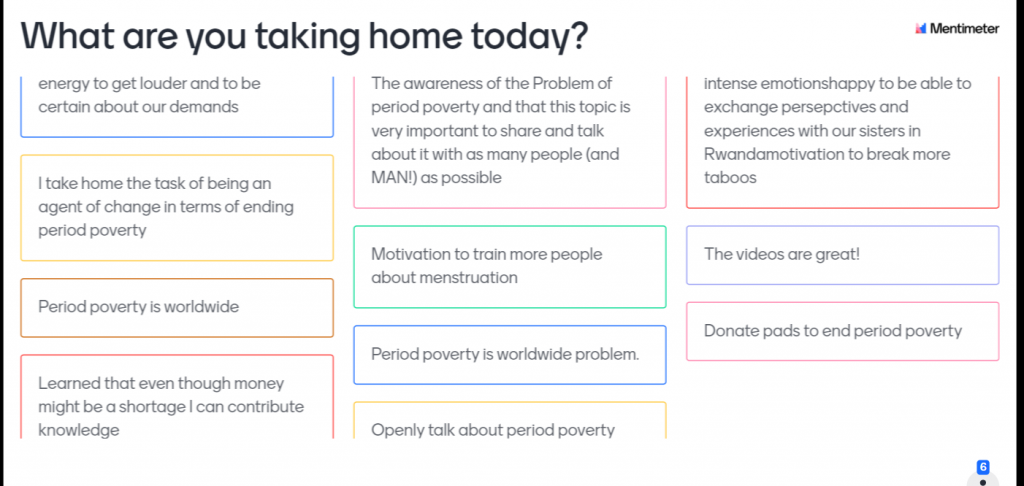
Workshop input:
Period Poverty in Kenya
Period Poverty in the UK
